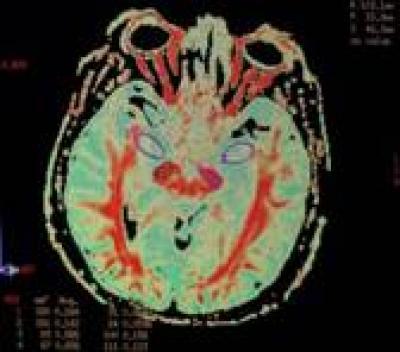Psychosis is a common non-motor symptom of Parkinson's disease whose pathogenesis remains poorly understood. Parkinson's disease in conjunction with psychosis has been shown to induce injury to extracorticospinal tracts as well as within some cortical areas. Jingmei Zhong and colleagues from First People's Hospital of Yunnan Province, China conducted a diffusion tensor imaging study in parkinson's disease patients with psychosis who did not receive antipsychotic treatment and those without psychosis, to determine whether the degree of white-matter fiber injury in brain regions associated with psychiatric symptoms is different from that which occurs in the extrapyramidal motor system. Results revealed that damage to the white-matter fibers in the brain regions associated with psychiatric symptoms were greater than that which occurs in the extrapyramidal motor system, which might explain why psychosis often occurs in Parkinson's disease patients. Using fractional anisotropy ratios of several brain regions, diffusion tensor imaging can be used to observe the relative degree of injury in brain regions associated with mental diseases, information that is valuable in the clinic and in scientific research. These findings were published in the Neural Regeneration Research (Vol. 8, No. 27, 2013).

This shows the establishment of locations and voxels (diffusion weighted imaging) of the hippocampus (top ovals voxel) and substantia nigra (bottom rectangles voxel) in a female 76-year-old patient with psychosis associated with Parkinson's disease.
(Photo Credit: Neural Regeneration Research)
Source: Neural Regeneration Research